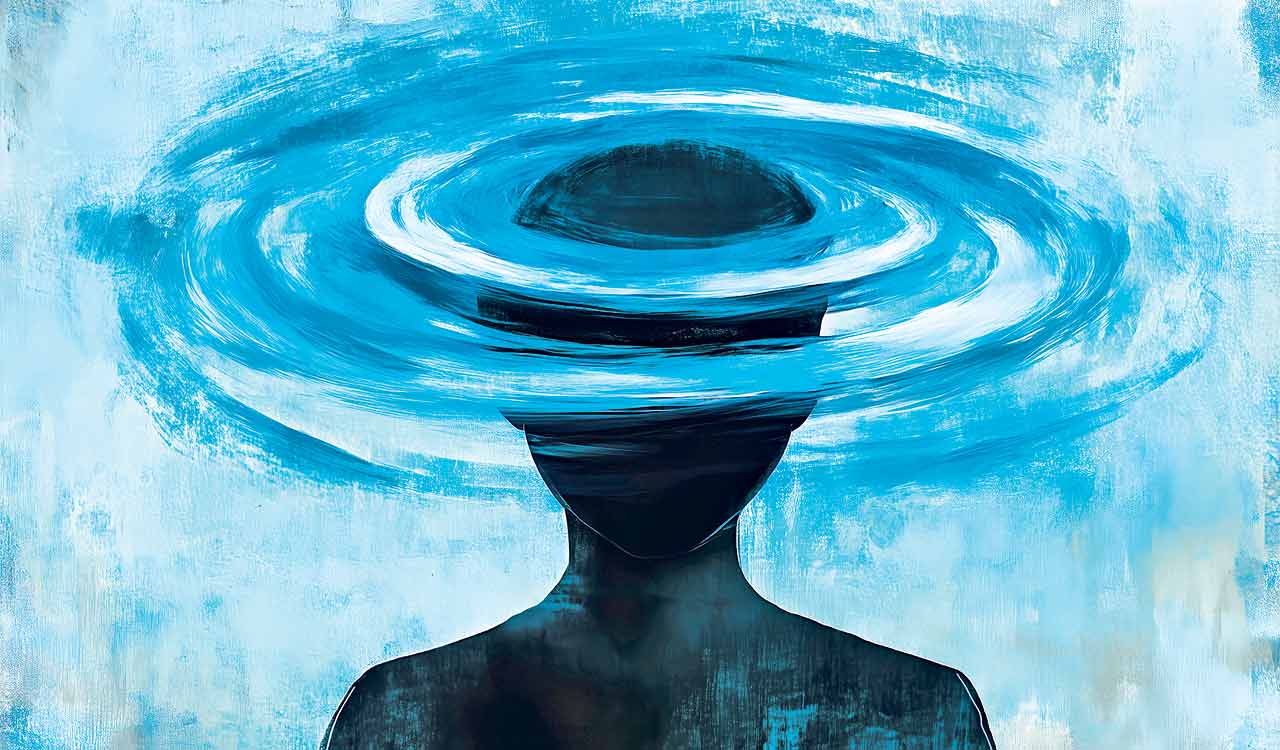Opinion: The man who tracked ghosts
Desh Subba's 'Scapeghostism' exposes the haunting legacy of scapegoating, urging us to confront uncomfortable truths and rethink human responsibility

By B Maria Kumar
Both William Shakespeare and Desh Subba used ghosts in their works to advance their intellectual explorations, but in strikingly different ways. Shakespeare’s spirits were postmortem, emerging after death, while Subba’s ghosts are antemortem, appearing within life itself.
Also Read
There is also a deeper nuance. Shakespeare’s ghosts sought retribution in the name of justice, whereas Subba’s ghosts are exposed for the restitution of justice. It is here that Subba’s conception of ‘scapeghostism’ becomes a stark jolt of reality, urging us to confront uncomfortable facts before situations spiral beyond control, for the betterment of the human condition.
Scapeghostism is the title of Subba’s latest book in his ongoing philosophical series. His inventive approach presents an unflinching argument that challenges humanity to examine its complicity in events and crises that should never have occurred. His assertions unsettle because they strike at the very core of human responsibility — nearly everyone finds themselves implicated in the circumstances they created or helped create.
Interwoven Themes
The book centres on three interwoven themes — scapegoat, scapegoateer, and scapeghostism, and traces how, throughout history, human beings have cunningly or cruelly subjected fellow humans to inhuman treatment. Drawing on thinkers from Socrates to Nietzsche to Yuval Noah Harari, Subba shows that in every age someone has played the role of scapegoateer while another has been reduced to scapegoat.
From primitive societies to the agricultural revolution, through industrial capitalism and into the modern digital era, Subba maps the tragic continuity of dehumanisation — humans turning against humans, again and again. Denial of dignity, equality, and basic rights has not diminished across the globe in the name of human rights laws; it has merely metamorphosed with more intensity, though less overtly, with the times. Slavery became human trafficking; mass persecutions followed oppression; colonial and imperial plunder gave way to the uprooting of populations; discrimination persisted through race, religion, language, ideology, etc.
Scapegoating, Subba argues, remains a dark constant in human history. He traces the deadly bloodsheds from the Peloponnesian Wars of the 5th century BCE through the crusades and civil strifes, down to today’s military conflicts across continents, driving home his point that the insatiable urge to scapegoat others has shown little sign of decline in a world that prides itself on ‘progress’.
By remaining silent, scapegoats deny themselves freedom, choice, purpose, and meaning, affirming Steve Biko’s words that acquiescence to injustice becomes the oppressor’s weapon
In Subba’s analysis, the founding legend of Rome becomes a parable of scapegoating. The twin brothers Romulus and Remus are cast as scapegoateer and scapegoat, their rivalry ending in fratricide. Prometheus too is seen as a scapegoat, punished by the mighty Olympic gods for the crime of being humanity’s benefactor. Even the father of relativity does not escape Subba’s critique. Einstein is portrayed as a scapegoateer whose advocacy for the atomic bomb ultimately scapegoated the people of Hiroshima and Nagasaki.
Humanity’s Journey
Subba repeatedly stresses that humanity’s journey has been scarred by cycles of victimisation, subjugation, and sacrifice. His lament is that scapegoats, bound by silence, endure their suffering without protest, while scapegoateers evade accountability for their misdeeds, often cloaking themselves in Freudian defence mechanisms. He even extends his voice to flora and fauna, pointing to their tragic degradation at human hands through domestication and destruction.
A striking feature of his argument is the imbalance — scapegoats remain nameless, scapegoateers blameless. Evil hides itself, yet always finds a way to side with the perpetrator or sometimes even with the victim like a ghostly presence. Each scapegoat, Subba argues, conceals such a ghost lurking around them.
Drawing on Jean-Paul Sartre, Subba infers that scapegoats live in bad faith. By remaining silent, anonymous, and submissive, they deny themselves freedom, choice, purpose, and meaning, affirming the South African anti-apartheid activist Steve Biko’s words that acquiescence to injustice becomes the oppressor’s weapon. To break this cycle, Subba issues a clarion call to expose the ghost of concealed truths.
From this conviction, emerges his concept of scapeghostism, the philosophical study of the innocent scapegoat. He proposes that scapeghostism can be addressed through several approaches, with two primary methods at its core. The first is to become an inescapegoat, the one who refuses to be trapped in the endless blame game. Such individuals consciously choose to break the cycle of scapegoating rather than submit to it.
Making Invisible Visible
When scapegoating is already underway, or when its ghost begins to haunt, the victim must make their unjust suffering visible to the world. What matters most is sharing factual details of what happened rather than obsessing over who did it. This shift unravels the shrouded story, moving the focus from a narrow, one-sided perspective to a broader, shared context. Once responsibility is widened, mediation becomes more effective, paving the way for fair hearings, support, protection, and a path towards healing.
Subba envisions his idea of scapeghostism as a torch, an intellectual flashlight that illuminates the hidden spaces where scapegoating thrives. This light exposes the tormenting ghost, making the invisible visible. It shines not only on the silent victim but also on the secretive perpetrator, bringing them to justice. By encouraging honest dialogue, fact-checking, questioning rumours, and reshaping entrenched mindsets, painful experiences can be transformed into opportunities for reconciliation.
Subba presents scapeghostism as a game-changing philosophical tool — one that analyses sociocultural and economic dynamics while transforming the complexities of human behaviour.
Ultimately, he emphasises that preventing scapegoating through proactive measures must always take priority, as stopping blame games before they solidify into tragic realities is the best course to achieve fairness and peace.

(The author, a recipient of National Rajbhasha Gaurav and De Nobili awards, is a former DGP in Madhya Pradesh)
Related News
-
Delhi courts Dhaka after BNP sweep, keeps close watch on ISI moves
7 mins ago -
Manjeera Pipeline Burst: Water restored in Manikonda within 24 Hours
9 mins ago -
Dark-web syndicates wage low-cost war on Indian judiciary
22 mins ago -
Andhra horror: Suspect in minor girl’s rape, murder found dead
1 hour ago -
Bandh observed in Kyathanpalli; heavy police deployment at Balka Suman’s residence
1 hour ago -
Four children suffer burns after drum filled with chemicals explode in Bengal’s Canning
1 hour ago -
PM Modi set to visit TN twice in March as NDA gears up for Assembly polls
1 hour ago -
Hyderabad: Christians observe Ash Wednesday with solemn masses
1 hour ago




